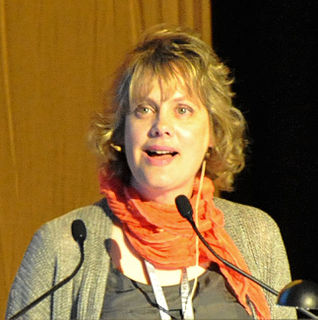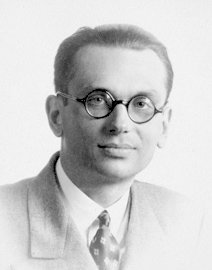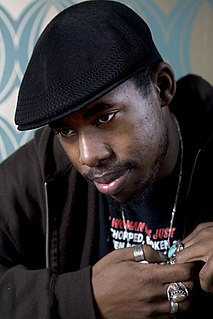A Quote by John Updike
In fact we do not try to picture the afterlife, nor is it our selves in our nervous tics and optical flecks that we wish to perpetuate; it is the self as the window on the world that we can't bear to thinkof shutting. My mind when I was a boy of ten or eleven sent up its silent scream at the thought of future aeons -- at the thought of the cosmic party going on without me. The yearning for an afterlife is the opposite of selfish: it is love and praise of the world that we are privileged, in this complex interval of light, to witness and experience.
Quote Topics
Related Quotes
Religion's greatest "sin" lies in displacing human endeavor, thought, time, resources and efforts from this world, our only world, in order to exalt a highly unlikely, unknowable, unseeable, unprovable and unbelievable pretend afterworld. The only afterlife that ought to concern us is leaving our descendants (along with the other animals and life we share our planet with) a secure and pleasant future.
Some might say that looking inside of ourselves for spiritual truths is egocentric and selfish, and that egolessness and selflessness lie in working for others in the world. But until we find our inner truth, our work in the world will always revolve around our 'selves'. As long as we think about the world in terms of 'self' and 'others', our actions will be selfish. Our 'self' follows us wherever we go, so positive results will be limited.
People, I thought, wanted security. They couldn't bear the idea of death being a big black nothing, couldn't bear the thought of their loved ones not existing, and couldn't even imagine themselves not existing. I finally decided that people believed in an afterlife because they couldn't bear not to.
The system that keeps cosmic beings in a bullshit frame of mind of what existence is to make money off them, use them for their own sick games, perpetuate religions and fear, keeping them small in their heads when they are the divine and we are one force of creative love light mind in a universe of co-creation, cosmic experience, self-expression who should be completely sustained by the cosmos without these power-pigs who kill bodies with chemicals and enslave minds and hide the truths of the universe from them and deal with aliens.
In the new alchemy, we have a similar kind of way of thinking. Our internal space includes our intuitions, our thoughts, our senses and our feelings, and from these we construct or build a picture of the outside world. From intuition and thought, we construct time. We also construct space from thought and our sensations. From our senses and our feelings, we experience energy, and from our intuitions and our feelings, we experience motion.
I believe there's more than this - that maybe when we die our brains conjure up some kind of shutdown experience, and that's what people try to sum up as the afterlife. But yeah, I think something else is going to happen and it's going to be crazy and confusing and weird, and we probably won't know what it's all about. It'll just be another place where we're trying to understand why we exist at all.
In the beginner's mind there is no thought, "I have attained something." All self-centered thoughts limit our vast mind. When we have no thought of achievement, no thought of self, we are true beginners. Then we can really learn something. The beginner's mind is the mind of compassion. When our mind is compassionate, it is boundless. Dogen-zenji, the founder of our school, always emphasized how important it is to resume our boundless original mind. Then we are always true to ourselves, in sympathy with all beings, and can actually practice.
We have to learn to go beyond both a positive mind and a negative mind to become a silent, nonjudgmental, non-analytical, non-interpretiv e mind. In other words, the silent witness. In the process of silent witnessing, we experience inner silence. In the purity of silence, we feel connected to our source and to everything else.




































